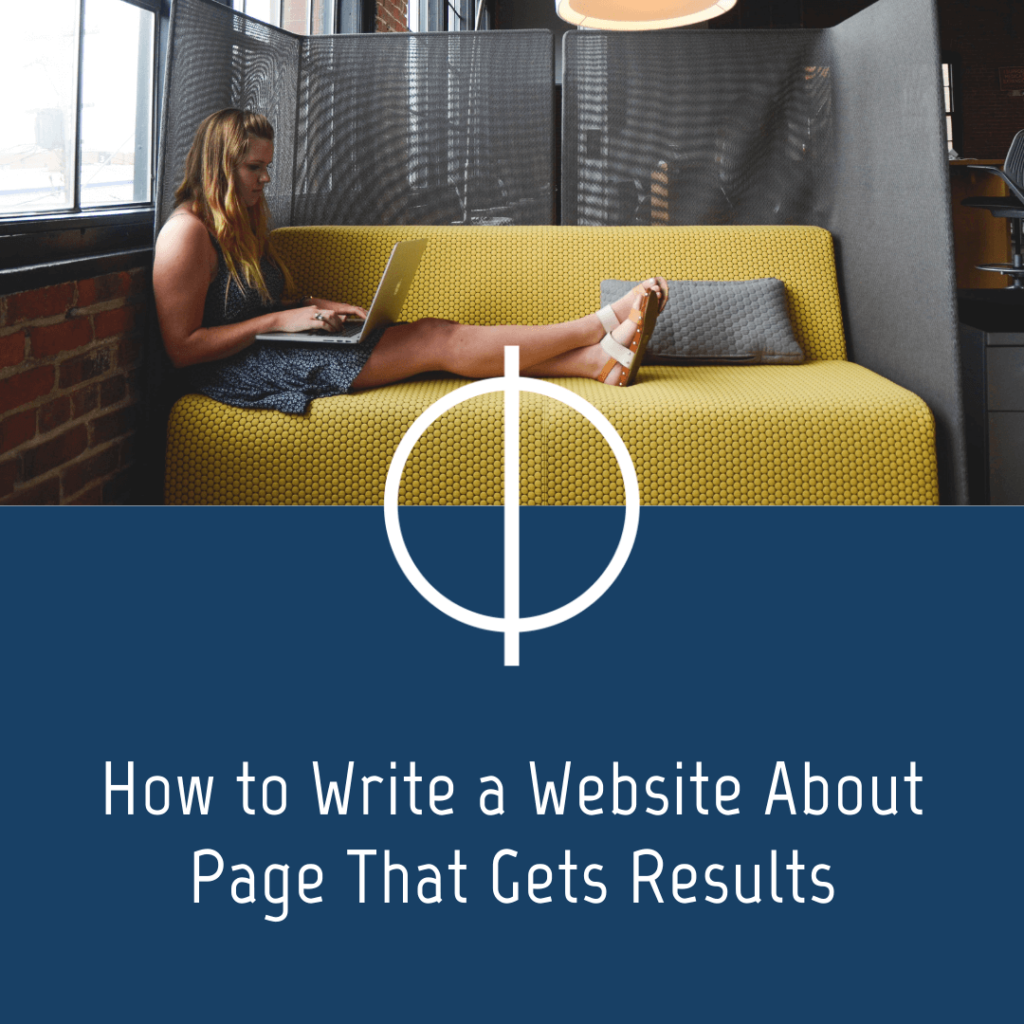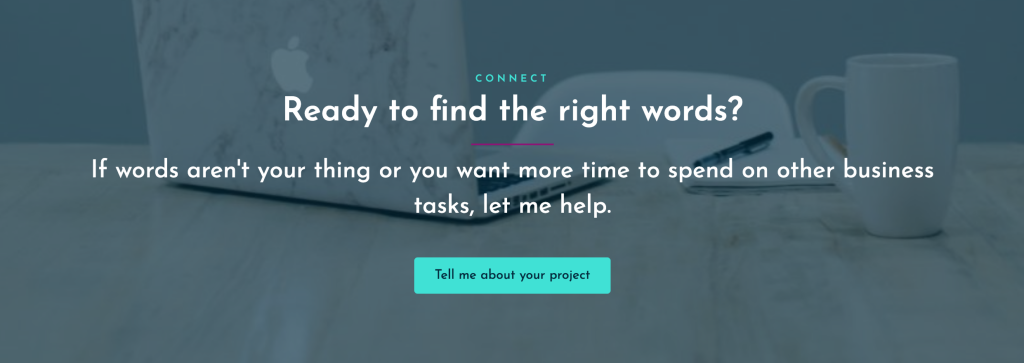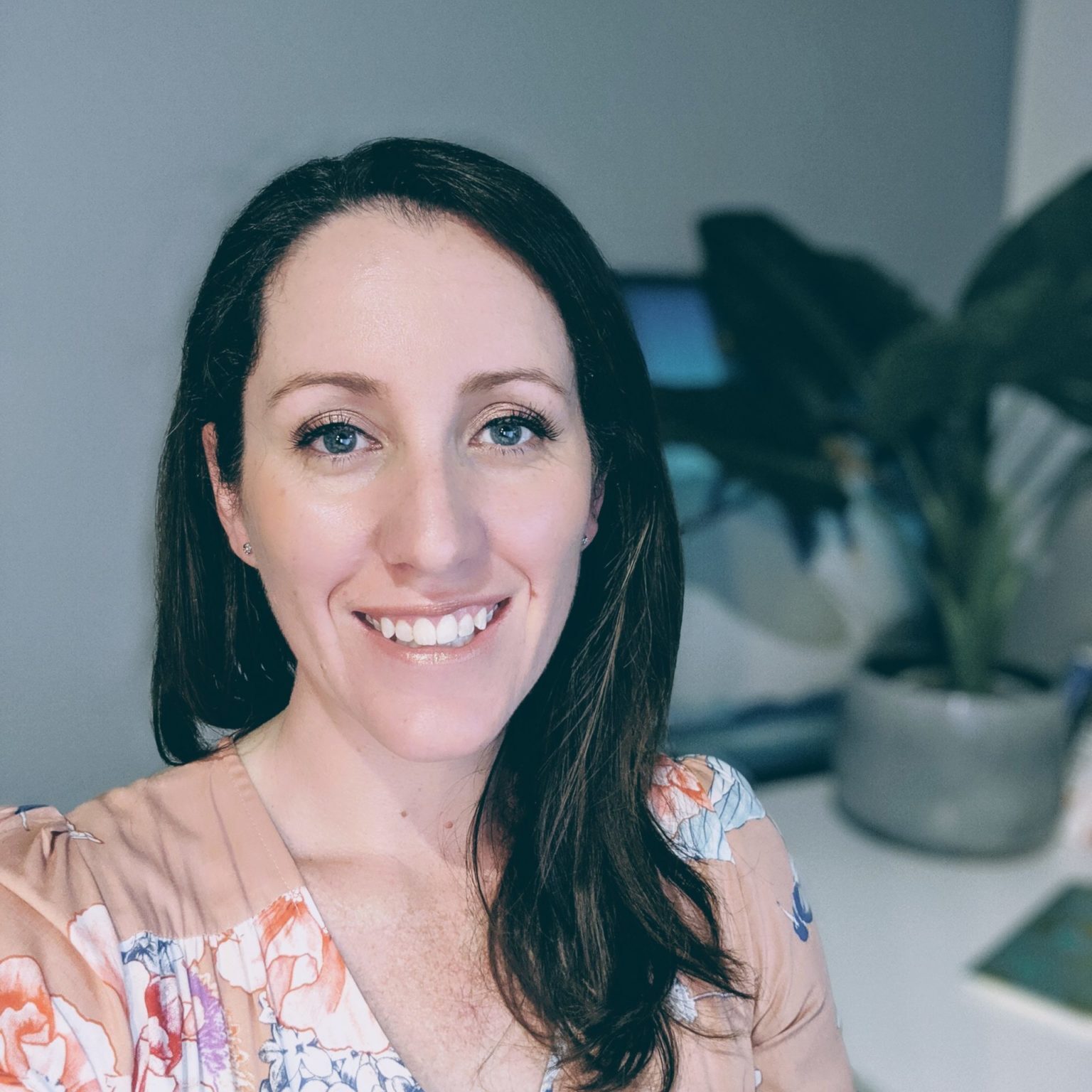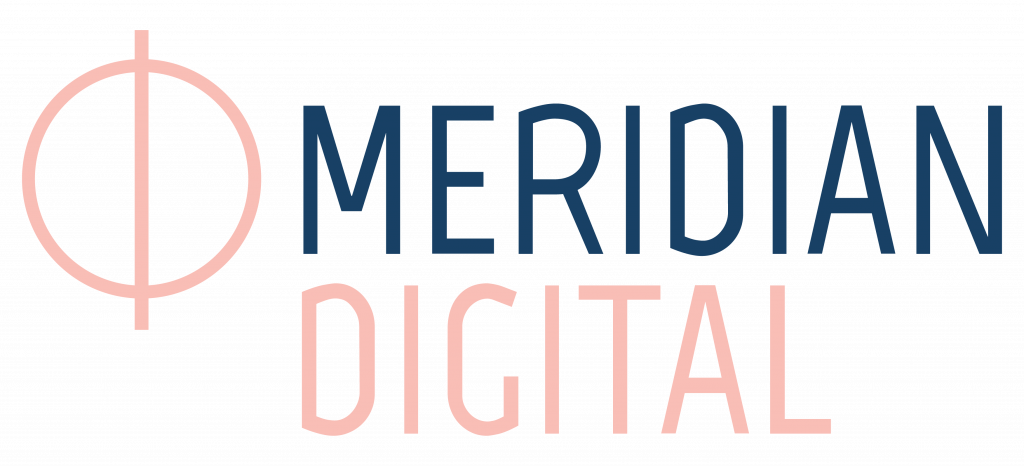
How to Write a Website About Page That Gets Results
Did you know that your website about page is one of the most visited pages on your website?
But writing a website about page is often an after-thought? A rush job. Or busy business owners bury it at the bottom of their already over-sized ‘to-do’ list. It’s a hard page to write so people tend to avoid it or don’t give it the attention it deserves.
But it’s not a matter of slapping together a history of your business and telling people how freakin’ awesome you are. Nope, your about page is a little more complicated than that.
Your about page isn’t about you. It’s about your readers.
It needs to connect with your target audience, not telling them how amazing YOU are.
Here are 9 tips to help you write your website about page so you can connect with clients and get results.
- Start with a photo of you
- Know who you’re speaking to
- Talk about your reader and less about you
- Give yourself permission to brag (but be clever)
- Keep it real
- Stand out. Do something different.
- Optimise for conversions
- Include a call to action
- Don’t overthink it and don’t overshare.
Let’s look at each of these more closely.
1. Start with a photo of you
Many small business owners loathe the idea of putting a photo of themselves up on their website. My question is, what are you afraid of?
People love to see and know who they’re buying from. They want to build a connection with other people, not a faceless brand. Personalise your about page with a photo and show people who you are. This helps readers establish an emotional connection with your brand, boosts your authenticity, and creates trust in you and your business.

Now, if you’re determined to avoid a photo, then your written voice is all you’ve got to lead with, so it better be darn good.
[Protip: Be creative. You could have one large image of yourself OR you could feature smaller ones that highlight you, your loved ones and things you’re interested in. Hire a professional photographer to help you out]
2. Know who you’re speaking to
As a small business owner, you already know how important it is to have a thorough understanding of your client. I’m not just talking demographics like age, sex and location. This information is useful but getting inside your ideal client’s head and truly understanding what drives them is gold.
This means knowing:
- what they value
- their fears
- what frustrates them, and
- the most important thing in their life
When you’re armed with valuable information like this, use it. Dedicate the opening sentence on your about page, to them. Show your readers that you know and understand their challenges (and their goals by addressing them straight up.
[Protip: Start with the reason they’ve come to your site in the first place]

3. Talk about your reader and less about you.
Rattling on about yourself on an about page is a turn off for readers and one of the biggest mistakes business owners make on their website.
Your about page is the perfect place to paint a picture of what you’re like to work with. It’s your opportunity to connect with your audience and show them how you can solve their problem/s. This is the key to achieving results.
You’re aiming to have your reader go “she gets me… this is what I need”. Make your reader wonder how they’ve ever lived without what you’re offering.
Of course, you still have brag rights to all you’ve accomplished – like growing your business, your stellar education and awards you’ve won. But, share them in a way that shows how they benefit your reader and have some fun with it.
[Protip: Dig into your reader’s mind and answer the questions your readers will have, like: “What’s in it for me”, “How will this person/business make my life better” or “Am I in the right place?”]
4. Give yourself permission to brag
Most people don’t like to blow their own horn. It’s awkward and challenging to write about what you’re good at.
Your website about page is a perfect place to do it (if you do it right).
Tell your audience about your credentials, certifications, qualifications or awards. Then remember to tie it back to the “what’s in it for me?” line of thinking.

Let’s look at an example.
“Hi, I’m Lyn, and I’m a life coach. I’ve been practising for over 20 years and I have the qualifications and awards to show it”.
So what?
It’s not enough to say you’ve got those awards you need to tell your reader what this means for them. How will it benefit them?
“Because I’ve won heaps of awards for my life coaching business, you can trust that you’re being coached by an experienced and reputable life coach.”
So what?
“This means that you can rest easy knowing I’ll help you kick goals, overcome obstacles and make changes in their life”.
[isn’t this the reason they’ve visited her site in the first place?]
This example isn’t pretty in terms of words, it wasn’t meant to be. But it highlights how you can tie your skills and experience into benefits for your customers.
[Protip: the ‘so what?’ test is an excellent way to nut out the big benefits that your readers want to know about. Benefits are different from the features and advantages of your product or service. I touch on this in my post about whether copywriters are worth the investment]
5. Keep it real
Connection. This is what it’s all about. Readers won’t develop a connection if the words on your page are as boring as bat poop and they learn nothing about you.
Inject your personality into your page and share your story authentically. Don’t just talk about your business, background and your qualifications. Share things that make you…well, you.
Share your interests. Are you into tea or coffee? A cat or dog person? What totally rocks your world? Even better, share something that simply makes you unique and memorable.
Want examples of stand-out about pages? Here’s 15 of the Best ‘About Us’ & ‘About Me’ Pages.
[Protip: Readers love to see your unique personality because then they know they’re dealing with a real human. But don’t share things you’re not comfortable sharing. The goal is to show off your personal side, just a little bit]

6. Stand out. Do something different.
Doing something different on your website about page helps you stand out from the crowd. Being different means you’ll become memorable and being memorable is excellent for business.
Here are a few quick ideas for you to consider:
- Create an infographic about your journey
- Try using illustrations instead of photos
- Explore different ways of showing yourself. Draw from things that you love (maybe time at the beach, cooking up a storm in the kitchen, sneaking some alone time in a corner with a good book).
- Share pictures of your workspace, your home, your pets or your family members.
Here are 25 great examples of creative and engaging about pages.
[Protip: Use different types of media on your page. Video is on fire right now, so try creating a short video introducing yourself to your readers. Keep it real and try not to sound scripted]
7. Optimise for conversions
As a business owner, you want conversions, right? So, it’s common sense that you’re going to want to optimise the shiz out of your about page. But before you do, remember it’s not about selling. It’s about…connection.
Your website about page is a great place to generate leads, nurture readers and gradually turn them into customers.
Use benefit-driven, keyword inclusive headlines, make sure your page loads quickly and optimise the content for search engines. And, share your opt-in or highlight your top blog post. Even better, let your customers do the talking for you by including social proof in the form of testimonials or link through to your broader testimonial page.
Make it hard for people to hit the back button or go looking elsewhere. Captivate them and leave them wanting more.
Don’t forget, you’ll need a compelling call to action. We’ll talk about these next.
For more useful tips to help with your small business website, check out this post.
[Protip: Optimise your about page for search engines so that it shows up in the search results when people search for you. It also helps you build your brand]
8. Include a call to action
Every page on your website needs at least one clear call to action, and your website about page is no different. By having a call to action on your website about page, you’re helping your readers know what you’d like them to do next.
Don’t leave them wondering, just tell them. Do you want your readers to:
- Subscribe
- Read THIS POST
- Connect with you on social media
- Learn more about your services.

Need help writing your CTA? Here’s 50 Call To Action Examples (and How to Write the Perfect One) https://adespresso.com/blog/call-to-action-examples/
[Protip: Be specific and keep it simple]
9. Don’t overthink it and don’t overshare
I’ve seen websites that are only a paragraph long and others that leave me feeling overwhelmed and confused. Don’t overthink your about page and don’t overshare.
You don’t have to tell your readers everything. Just tell them the parts that they want to hear.
[Protip: Charm your readers with a peek behind the curtains. But omit information that doesn’t build a connection or is irrelevant]

Final about page tips
Let’s wrap up with a few quick tips to help you get the most out of your website about page:
- Tell a story
- Keep it between 400 – 700 words (this will please your human readers and google)
- Use headings, sub-headings, images and white space to make it visually appealing and easy to read
- Don’t use jargon
- Write conversationally and use your brand voice
- Make it easier for your users to find what they’re looking for by naming your page ‘About’ or ‘About us’ etc.
- Use facts and figures to boost credibility, and acknowledge to yourself that it’s a work in progress
There you have it! Use this guide to write your own kick-ass website about page or refresh your current one.
Alternatively, if you haven’t got the time to invest in writing your own about page, let me help. Visit my post on hiring a copywriter or get in touch to discuss how I can help.

Hi! I'm Leeha Debnam
I help service-based businesses connect with customers with my affordable, all-inclusive digital marketing support packages. Having one point of contact means I get a deeper understanding of your business. The result? On-brand and authentic digital marketing that connects you with clients and helps you build the business you desire. From brand strategy, copywriting and content, to websites and social media - I'll tailor a package to your needs.
If you're a business owner looking to stand out from the crowd and connect with clients, book your free 30-minute consultation call today.
Loved this post? Share the love...
Want to know when I publish another post with helpful tips, actionable advice or copywriting and website design insights? Simply subscribe below and join my mailing list.

